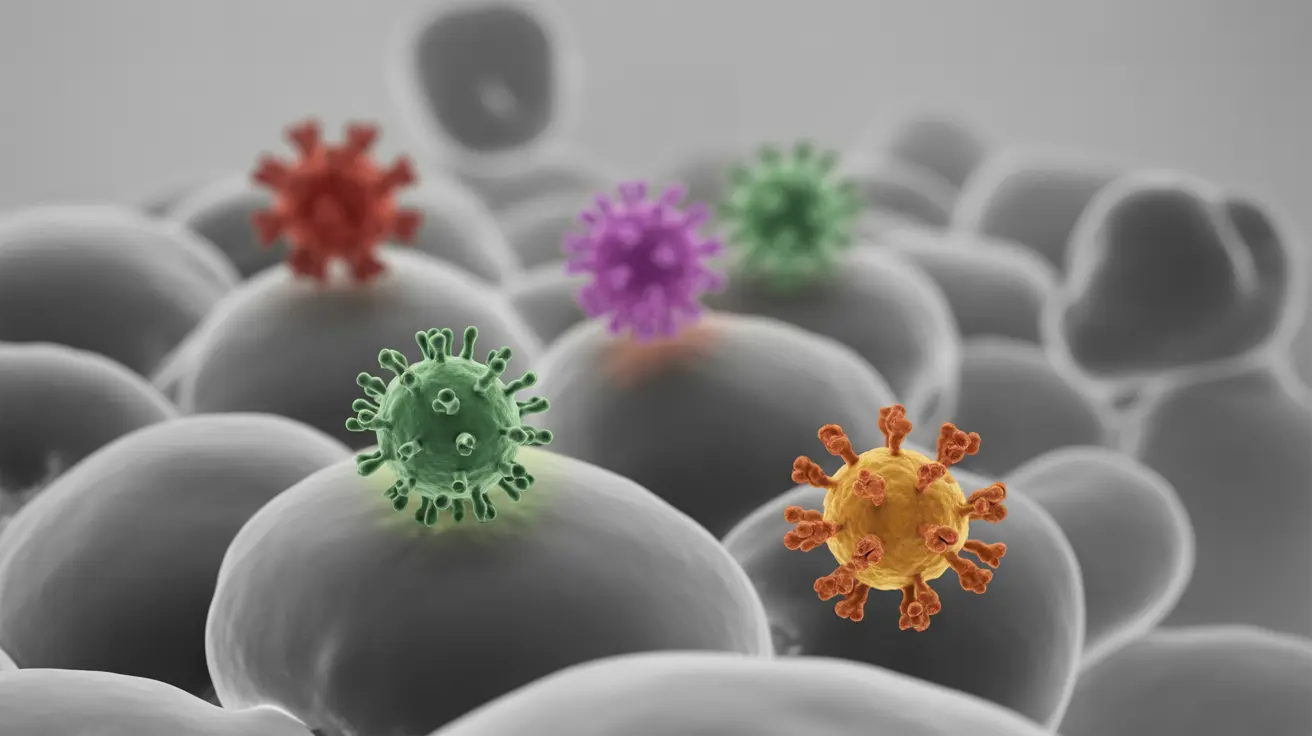Sexually transmitted diseases (STDs) remain a significant public health concern, and understanding which ones cannot be cured is crucial for both prevention and management. While many STDs can be treated and eliminated with appropriate medical intervention, several viral infections persist in the body indefinitely, requiring ongoing management and care.
This comprehensive guide explores the most common incurable STDs, their management options, and essential prevention strategies. Understanding these conditions is vital for both those affected and their partners to maintain health and prevent transmission.
Common Incurable STDs and Their Causes
Several viral STDs cannot be completely eliminated from the body once contracted. The main incurable STDs include:
- HIV (Human Immunodeficiency Virus)
- Herpes (HSV-1 and HSV-2)
- Human Papillomavirus (HPV)
- Hepatitis B
These infections persist because viruses integrate into the host's cells or establish latent infections that the immune system cannot completely eliminate. While we cannot cure these conditions, modern medicine offers effective management strategies.
Management and Treatment Options
HIV Management
Modern antiretroviral therapy (ART) has revolutionized HIV treatment. When taken consistently, these medications can:
- Suppress viral load to undetectable levels
- Protect the immune system
- Allow people with HIV to live long, healthy lives
- Significantly reduce transmission risk
Herpes Management
Both oral and genital herpes can be effectively managed through:
- Antiviral medications to reduce outbreaks
- Daily suppressive therapy to minimize transmission risk
- Lifestyle modifications to prevent triggers
- Proper outbreak care and management
HPV Management
While HPV often clears on its own, persistent infections require:
- Regular monitoring for precancerous changes
- Treatment of visible warts when present
- Regular cancer screenings, especially for high-risk strains
- Immune system support through healthy lifestyle choices
Prevention Strategies and Vaccines
Some incurable STDs can be prevented through vaccination:
- HPV vaccines (such as Gardasil 9) protect against most cancer-causing strains
- Hepatitis B vaccine provides long-term protection
- Regular screening and safe sex practices remain essential
- Pre-Exposure Prophylaxis (PrEP) can prevent HIV infection
Living with Incurable STDs
Managing an incurable STD requires a comprehensive approach:
- Regular medical check-ups and monitoring
- Consistent medication adherence
- Open communication with healthcare providers
- Support group participation when needed
- Honest discussions with sexual partners
Reducing Transmission Risk
People living with incurable STDs can take several steps to protect their partners:
- Using barrier methods consistently
- Taking prescribed medications as directed
- Avoiding sexual contact during outbreaks
- Regular testing and honest communication
- Following medical advice regarding safe sexual practices
Frequently Asked Questions
What sexually transmitted diseases are not curable and why?
HIV, herpes, HPV, and hepatitis B are not curable because they are viral infections that integrate into the body's cells or establish persistent infections that the immune system cannot completely eliminate. While these conditions cannot be cured, they can be effectively managed with proper medical care.
How can incurable STDs like herpes, HIV, hepatitis B, and HPV be managed or treated?
Each condition has specific management strategies: HIV is managed with antiretroviral therapy, herpes with antiviral medications, HPV through monitoring and treating complications, and hepatitis B with antiviral medications and liver health monitoring. Regular medical care and medication adherence are essential for successful management.
Can vaccines prevent some of the incurable STDs, and which ones?
Yes, vaccines are available for HPV and hepatitis B. The HPV vaccine can prevent most cancer-causing strains, while the hepatitis B vaccine provides long-term protection. Currently, there are no vaccines for HIV or herpes, though research continues.
What are the common symptoms and risks associated with incurable STDs?
Symptoms vary by condition but may include flu-like symptoms, skin lesions, warts, and in some cases, no visible symptoms. Long-term risks can include increased cancer risk (HPV), liver damage (hepatitis B), immune system compromise (HIV), and recurring outbreaks (herpes).
How can people living with incurable STDs reduce the risk of transmitting the infection to others?
Risk reduction strategies include consistent use of barrier methods, adherence to prescribed medications, avoiding sexual contact during active outbreaks, regular testing, and open communication with partners. Some conditions, like HIV, can become untransmittable with proper medication adherence and undetectable viral loads.




